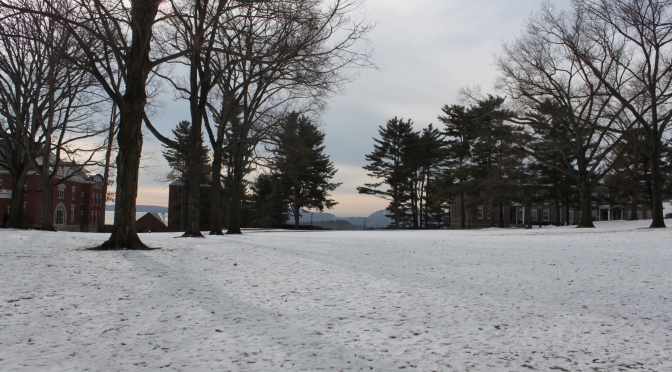For me, Defining Amherst is the result of a discontentment with the community, or lack thereof, at Amherst. We’re a small school, but instead of being a cohesive community we are simply groups of strangers living in the same place. Why is it that we can’t find a common experience or sentiment to bond us together when the human experience itself has so many universalities?
Defining Amherst is about finding that common thread or human connection that is often so undervalued in our society. We want to encourage everyone to think about and talk about what it means to be here. What does Amherst College mean once you’ve left campus? What does it mean when you’re sitting in a classroom? What does it mean in that moment you have to breathe in between the paper you just finished and the project you’re about to start?
-Seewai Hui
What do you think about the campus community, both inside and outside of the classroom? How do you think you might view your experience at Amherst after you graduate?

One way to create a cohesive community is through chauvinism. “We’re the best!” This brings the community together – but only by setting up an us/them world, drawing the wagons together in a circle to repel the outsiders.
I don’t think this is what we want, is it? We need a way to find that cohesion based on Amherst’s qualities in themselves rather than in relation to others’.
That just brings us back to your question of what are those qualities. Maybe just sharing Valentine Hall and life among the same trees and under the same New England sky is enough to bond people. Certainly this seems the kind of thing that bonds alumni many years later.
I’ve always said that what defined us as Amherst students was our experience of tough, even ruthless, teachers who didn’t pamper us but invited us to go deeper and deeper into our experience, to question everything, to be honest in our hesitations and doubts, to base our moral code not on some list of right behaviour (or even on any regard for the “rights” of others – an abstraction we would have regarded as absurd) but on using the appropriate tone and authentic language in speaking about whatever we were discussing. (Maybe we were that much closer to Emerson and Thoreau, Dickinson and Frost in those days.) This encouraged us to be witty, often cruel, and often heartless, and to suffer under the wit, cruelty, and heartlessness of others. A rite of passage for boys in those days, and I remember that for most of us it took years to mellow out from this. But I think we mellowed into good people. The pain we experienced at Amherst matured into compassion.
Or so at least I liked to see it.
Does this look at all recognisable to present-day Amherst students? If not, then what has replaced it? – Or maybe, like me, you can’t really say until after you graduate. For now, perhaps what unifies Amherst is everyone’s discontent and anxious seeking for some kind of cohesion. That’s not a bad place to come together, after all, is it?
Robert-Louis Abrahamson, 71